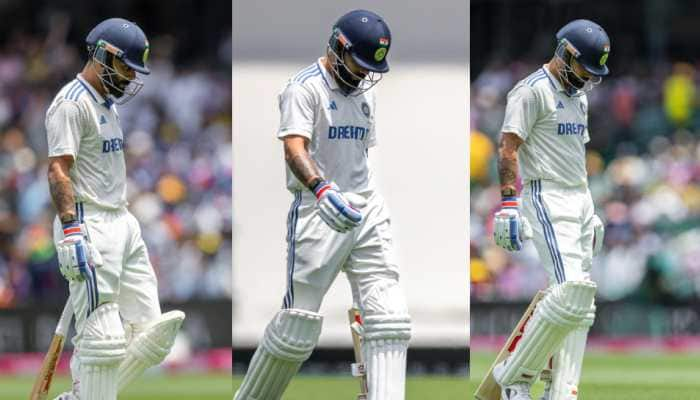Marine debris damaging coral reefs: NIO scientist
The increasing amount of marine debris like plastic, glass, rubber and others break or damage reef, a senior scientist said here.
Trending Photos
)
Panaji: The increasing amount of marine debris like plastic, glass, rubber and others break or damage reef, a senior scientist said here.
"Marine debris like plastic, glass, metal, rubber abandoned fishing nets and other gear often get entangle and kill reef organisms and break or damage them," said Dr Mahua Saha, senior Scientist from National Institute of Oceanography (NIO) addressing representatives of SAARC nations during a workshop held at Port Blair, Andaman.
She said the reefs in Northwestern Hawaiian Islands are particularly prone to accumulation of marine debris because of their central location in the North Pacific Gyre.
"From 2000 to 2006, NOAA and partners removed over 500 tons of marine debris there," Saha added.
The workshop was organised by NIO for SAARC Coastal Zone Management Centre.
The policy makers from four SAARC countries -- India, Bangladesh, the Maldives and Sri Lanka -- participated in the event.
Saha said that the increasing level of marine pollution is playing an important role in coral destruction.
"Reefs in close proximity to human populations are subject to poor water quality from land and marine-based sources. In 2006, studies suggested that approximately 80 per cent of ocean pollution originates from activities on land," she said.
"Major part of pollution comes from land-based run off, oil spills, nutrients and pesticides from agriculture, wastewater, industrial effluent, untreated sewage and others.
Among the four major types of marine pollution - chemical pollution, nutrient pollution, marine debris pollution and air pollution, chemical and nutrient pollution play major role to obstruct the role of corals.
Pesticides containing persistent organic pollutant (POPs), hydrocarbons from oil tankers and heavy metals from industrial (mining, dredging) effluent cause major threat to corals, the scientist said.
Some coral species are sensitive to these although the extent is not yet known, Saha said.
Toxic chemicals like POPs and PAHs can destroy or damage reef communities by affecting coral's reproduction and growth and can be bio-magnified to a critical level for the higher level animals of the food chain making them vulnerable to this process, the workshop was told.
Heavy metals such as copper and zinc have been linked to reduced fertilisation, fecundity and growth in adult corals.
Saha said nutrients discharged in form of fertilisers, waste feed and other materials from aquaculture and agriculture into coastal waters which lead to the bloom of nuisance algae (eutrophication) and subsequent oxygen depletion, plays a major hindrance in coral growth.
She pointed out that according to World Resource Institute, Washington, the Southeast Asian coral reef including Indian Ocean, are in high risk in terms of human activities.
The percentage of inland pollution and marine pollution is also very high in these regions.
"However, inspite of corals and other marine ecosystem are at higher risk with the effect of marine pollution, not much work on effect of pollution have been done so far.
Hence, more studies have to be done on quantity and quality of chronic pollutant discharge such as on corals. And also long term studies are needed to document the recovery times of reef from sewage impact," she added.
Stay informed on all the latest news, real-time breaking news updates, and follow all the important headlines in india news and world News on Zee News.
Live Tv







)
)
)
)
)
)
)
)
)
)
